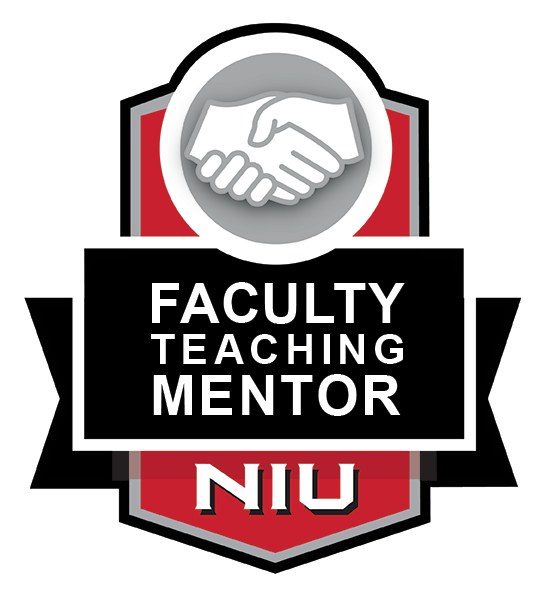 Jeanette Rossetti, Ed.D., M.S., RN, CNE
Jeanette Rossetti, Ed.D., M.S., RN, CNE
Distinguished Teaching Professor
Interim Chair
School of Nursing
Teaching Expertise and Approach
Jeanette teaches undergraduate and graduate courses in nursing. She describes his approach to teaching as follows:
"If we can be a spirit lifting presence among those with whom we work, we have begun to understand inspiration (DePree, 1997, p. 170).
These words of DePree cause me to think about the relationship adult educators have with their students in higher education. They also remind me of my own experiences as a student and as a teacher. I recall being inspired by a few of my former teachers, and I have come to realize that the effect they had on me personally and professionally has been positive and long lasting. As I reflect on my own teaching philosophy and goals I have come to find that it is imperative to be able to motivate, enlighten, and inspire students, thus creating a passion for learning. In my specialty, psychiatric nursing, It is important for the student to gain knowledge in a variety of complicated medical and psychiatric subject matters. The nursing student must be competent and prepared to pass the NCLEX® Examination. The stakes are high and we, as nursing faculty, have a heavy load of teaching responsibility.
However, I believe good teaching is much more than a one way pontification of ideas in an area of expertise. There is an important phenomenon that occurs between a teacher and student and this phenomenon has to do with the experience of inspiration. It is imperative to pass on to students a love for learning, a passion that will continue throughout their lifetime, and an enthusiasm that will enable them to be life-long learners. To foster this love for learning, a special connection to the student is required. I believe inspiration has something to do with this special connection.
Inspiration – a feeling, a spirit-lifting presence, a breathing in or infusion of some idea, a suggestion, an awakening – is an important factor when the teacher and learner interact. Results of inspiration can be increased clarity, energy, openness, and connection. In fact, inspiration should be nurtured and can be a catalyst for learning (Hart, 1993). In addition, the connection – viewed as a synergy and an established rapport between teacher and student – was shown to be an important component of the educational process, allowing for the opportunity for inspiration to occur.
In addition to inspiration I consider respect another important factor in teaching. Respect is not a given. It is not something that should be expected. I believe respect is a two way street. I try to always respect and value what my students bring to the learning environment. Stress and college seem to go hand and hand. Many students have families and jobs to contend with in addition to going to school. I always try to respect these factors and support all that the students are going through while they are learning. I truly want them to succeed and try to assist them as much as I can. Having a one on one discussion out of the classroom, encouraging counseling services, or writing a letter of recommendation for a much needed financial scholarship are just some examples of how I can support my students.
I also find that mentoring students is another way to offer support. I have supervised many in class honor’s projects, honor’s capstone projects, traveled abroad with students, and have gone to local, national and international conferences with students presenting both at the podium and via posters. Mentoring students in how to professionally present and network with future colleagues is most rewarding and sets them up for future successful careers in their specialty areas! Traveling abroad with students to explore Ireland’s healthcare services, has given me another way to support more of a global perspective for students and has broadened all of our horizons.
Feedback is important to me as well. I want to hear what the students have to say and realize with class sizes increasing it is hard for every student to add to the class discussion on a daily basis. Because of this I utilize “feedback folders” so students can share with me reactions to the course material, unanswered questions or comments related to my teaching. I then offer written feedback in return. Having their name on the outside of the folder, which is visible during class, gives me the opportunity to get to know them by name. Students continue to report feeling more appreciated and valued in the classroom and I feel that using the feedback folder adds to this appreciation.
I have found that teaching psychiatric mental health nursing has its own challenges. There is much stigma and preconceived notions regarding psychiatric patients and mental illness. Many students have had their own dealings with mental health issues in their personal life. This can lead to lively and spirited discussions in the classroom. I encourage trust and openness in the classroom and ask students to “suspend judgments” so that everyone can feel comfortable sharing in discussions. I am constantly impressed by the students’ personal stories and connections to the material being covered. It truly makes the subject matter we are learning meaningful to all in the class.
I have found teaching to be most rewarding and fulfilling. Being inspired truly works both ways. I am constantly inspired by my students and know that this two way street has led to an exciting learning experience for both my students and I."
References
DePree, M. (1997). Leading without power: Finding hope in serving community. San Francisco: Jossey-Bass.
Hart, T. R. (1993). Inspiration: An exploration of the experience and it’s role in healthy functioning. (Doctoral dissertation, University of Massachusetts, 1993). Dissertation Abstracts International, 54 (02), 1077.
Types of Courses Taught
- Online
- Hybrid
- Seminar
- Honors
- Independent Study
- Undergraduate
- Graduate
- Study Abroad
Availability to Meet - Spring 2026
- Tuesdays, 2-3pm or 4-5pm (in-person or online via Teams)
Courses Taught
- NURS 314 - Mental Health Nursing
- NURS 323 - Mental Health Clinical
- NURS 603 - Nursing Education Practicum: Direct Care
- NURS 621 - Education Didactic 1
- NURS 622 - Education Didactic 2
- NURS 623 - Nursing Education Practicum: Classroom Setting
- NURS 633 - Nursing Education Practicum: Clinical Setting
- NURS 701 - Advanced Nursing Leadership

Contact
Jeanette Rossetti
Pronunciation Ja-NET Row-SET-ee
rossetti@niu.edu
Nursing 2116
Personal Website